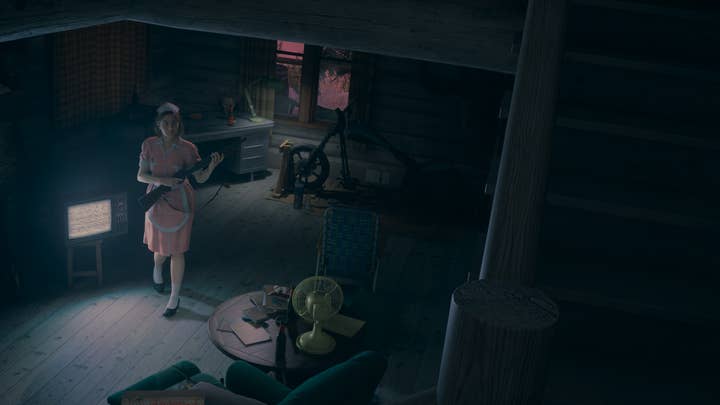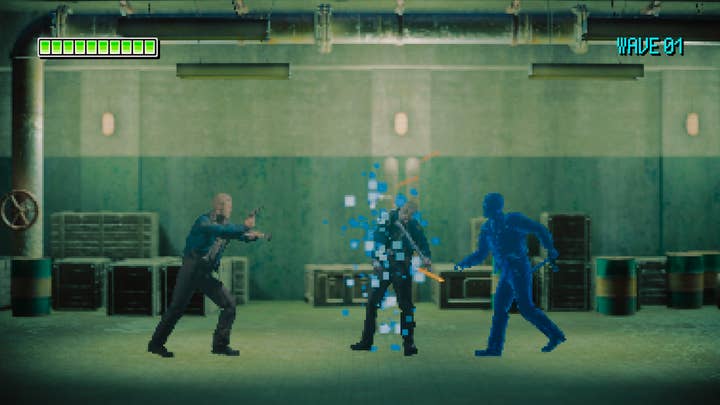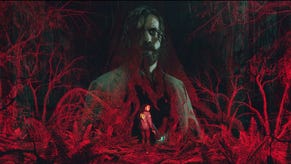Remedy's "no holds barred" approach to Alan Wake 2 expansions
Developer talks about Night Springs expansion and the importance of collaboration during development
One of the biggest announcements to come out of Summer Game Fest today was Night Springs, the first expansion of Alan Wake 2.
Dropping tomorrow, Remedy also announced the release of photo mode in tandem with the DLC, as well as a physical edition of the game set to hit shelves later this year.
While the shadow drop is somewhat of a surprise, the expansion isn't. Night Springs was revealed alongside the second DLC, The Lake House, back when pre-orders were announced for Alan Wake 2. The first expansion will see players control three characters from Remedy's connected universe within narratives framed as episodes from the in-game anthology series Night Springs.
Prior to the Summer Game Fest announcement, GamesIndustry.biz spoke with game director Kyle Rowley, lead writer Clay Murphy, level designer Nathalie Jankie, and communications director Thomas Puha.
Puha says Remedy decided to time the release of Night Springs around Summer Game Fest because the event "is a huge platform for bringing the news to a massive audience." But, he also says it was for the benefit of fans.
"Marketing campaigns tend to be shorter these days, and it's good to try and do things differently," he explains.
"We've always taken a very long view at Remedy. The first couple of months [are not] focused on sales; it's the next three years at least"Thomas Puha
"So, together with our publisher Epic, we figured this time around we would announce the expansion right before it's released so fans have a short wait to get their hands on it."
Promotion for Night Springs has been relatively short compared to the main game, but there have been hints on social media for the past week alluding to its release.
"There's always discussion about how much of the marketing budget should be saved for post-launch, but the thinking tends to be that, especially with a single-player game, the launch is the most important thing to get right, so that justifies the spend at launch," Puha notes.
Night Springs hasn't been in development for long, either. It started after the release of Alan Wake 2, but the concept was there before the game was even finished.
"We always wanted the idea of playing as multiple characters," Rowley says. "In the original concept of the base game, we wanted to have more playable characters than we ended up with. Night Springs as a concept came about as we were figuring that out. We parked it, then after we were done with the game, we wrote some more awesome, crazy stuff."
Murphy adds: "The writing process was very loose and fun – no rules, no holds barred. Just pure experimentation and trying to find the fun in each episode and push it as far as we could."
He also highlights the collaborative nature at Remedy, in that all departments working on the expansion were involved in shaping the narrative.
"The writing process was very loose and fun – no rules, no holds barred. Just pure experimentation"Clay Murphy
"We're trying to have fun here and make it bizarre," he says. "So not every idea comes from the writers, the process definitely involves the team."
"I think everyone just sunk their teeth in and ran with it," Jankie adds. "It was really fun to see how every department [got involved]."
Rowley says that making this expansion was "a nice palate cleanser" for the team as well.
"Working on a horror game for five years is, you know, being stuck in The Dark Place with Alan – we wanted to do something a bit more freeform," he explains.
"There was no 'Is this too crazy?' during development. It was more like, 'Is this crazy enough?' That was the mindset coming into this, and it was a nice change of pace."
There's always a challenge in determining which parts of the team to utilise and balancing studio resources during production, but this changes significantly when making an expansion. Especially for Remedy, which has numerous projects in different stages of development including Control 2 and the Max Payne remakes.
"That is a constant challenge when you work on multiple games at vastly various stages of production," Puha notes.
"We feel a lot better about it now than a few years ago. We've wrapped our heads around how to do this, but there is no denying that it's highly challenging to manage teams competing for developers and other resources. Having said that, we are all buzzing about the future roadmap of our games.
"We always planned for a dedicated post-launch team for Alan Wake 2," Puha continues.
"It's a small team, but everyone in it worked on Alan Wake 2, the tech and tools are ready, and creating the expansion is easier than the main game."
This isn't the first time Remedy has worked on DLC content.
Control saw two expansions following its release, as did the original Alan Wake in addition to the 2012 spin-off American Nightmare. Which, similarly, is framed as a Night Springs episode.
"American Nightmare was tonally quite different from the original game," Rowley notes. "In that same vein, we are creating a slightly different experience. From a gameplay perspective, we've shifted it for each episode to match the tone. We wanted to make the gameplay feel familiar, but also under a slightly different stylisation and context."

The time and resources spent making an expansion like Night Springs is a gamble, seeing as not all players of the base game will pick it up. But this is something that Remedy was aware of, Puha notes.
"It's about having realistic expectations, market data, and knowing who you are making the expansion for and what business purpose it serves," Puha explains.
He also notes the reception of Alan Wake 2, which has sustained solid momentum since launch through the release of its new game plus mode in December, various patches, developer streams, behind the scenes content, and fan interaction.
"The response was incredible," Puha says. "Alan Wake 2 was a very hard game to ship. But we always had the plan of once we ship it, there's still things we want to talk about in addition to this expansion, photo mode, and the second expansion that we're working on."
He continues: "We've always taken this very long view at Remedy. It's not like the first couple of months are focused on sales; it's the next three years at least – that's how we look at it.
"There's various bits and pieces we're doing that will hopefully keep the game out there. But it really resonated with people in an incredible way."
Jankie adds: "There's just something very infectious and motivating [about its reception]. I'm very grateful because it was received well and now it feels like, 'Yay, we can do more of this.' It feels really great."
"There was no 'Is this too crazy?' during development. It was more like, 'Is this crazy enough?'"Kyle Rowley
Like the main game, Night Springs was developed with the fans in mind.
"There's quite a lot of fan service, I would say," Rowley notes. "We definitely wanted to make sure that we were using characters that players who have played our games would resonate with and would want to play as again in some instances."
"It's nostalgic for us, looking at what fans want," Murphy adds.
"Remedy fans engage with our games in such a way that is really inspiring. To see what they interpret our games to mean or what they theorise we're going to do in the future."
Jankie mentions that the team often looked at what fans were talking about online, and what they wanted to see in the expansions.
"That was a really nice motivator to have," she says. "We could see we were on the right track and we were doing something that hopefully they would appreciate and tap into as we have."







